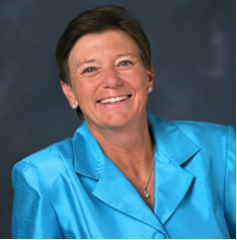AARP Hearing Center

Greetings one and all…
I find it hard to believe that we are knee-deep in the summer season. WOW! The entire year has been somewhat of a blur with work, caregiving demands, and health concerns. I don’t know about you, but I could use a little break in the action! So pull up a chair, grab your preferred beverage, and take a deep breath. Let’s chat. This past weekend, I had the honor to participate in a program for caregivers sponsored by numerous companies along the Front Range that serve caregivers and care receivers. I focused on the importance of self care for caregivers—an important message that can’t be overemphasized. As always, I learned so much from the caregivers in attendance as they shared their personal experiences and insights.
I was profoundly touched by the story of a woman who had cared for her husband for thirteen years. She knew the daunting journey of Alzheimer’s disease from the inside out, companioning her husband every step of the way. She said that although the experience had been difficult, there were organizations, support groups, and services available to assist with various aspects of care. However, after the death of her husband, she felt totally unsupported and alone. She was not only grieving the death of her husband, she was also grieving the loss of her role as caregiver—a role that had been all-consuming for the past thirteen years. Her family and friends seemingly didn’t “get it.” They didn’t understand that she felt adrift due to a lack of purpose and meaning in her life.
This is not an uncommon reaction when the journey of caregiving ends. We often feel at “loose ends” not knowing how to re-engage with life. In response, I highlighted the benefits of grief and bereavement support groups offered by hospice organizations. These groups are available to all community members. You need not have been served by a hospice organization to attend a support group. These groups offer the desired and needed support after the journey of caregiving ends—a forum wherein caregivers can discuss all facets of their respective loss. A fabulous resource indeed.
Later in the day, I had a very emotional conversation with a caregiver whose husband had recently died after a very long and challenging journey. She shared that the death of her husband of 60 years was indeed a profound loss. But she noted that the hardest thing to deal with in the aftermath of his death was an overwhelming sense of guilt. She felt guilty because she was relieved that the journey was over. She felt guilty that she was somewhat excited about reclaiming her life and doing some “fun” things again.
Countless caregivers have shared similar stories with me. Furthermore, I have experienced my fair share of guilt having cared for numerous family members. Evidently, the reality is this—the end of the caregiving journey is bittersweet. We’ll struggle with conflicting emotions such as relief and guilt. So, it’s important to seek a balanced perspective. Remember, it’s OK to feel relieved. It’s OK to re-engage with life. It’s OK to feel happy again. Ultimately, I believe we honor our loved ones best by shaking off inappropriate guilt and savoring every step of the ongoing journey. When the caregiving journey ends, another journey begins. Traveling mercies to you and yours.
Thanks so much for stopping by today. I invite you to share your perspective on the caregiving journey. Make suggestions. Pose questions. Provide resources. Share your story. Coming together and sharing, we will improve the process for one and all. I look forward to continuing the conversation next month. Til then, enjoy the moment...Jane W. Barton
Do you have a question for Jane? Please email us at coaarp@aarp.org and we will be in touch soon!
Jane W. Barton, MTS, MASM, CSA is a passionate speaker, writer, and listener. Jane is the founder of Cardinal, LLC, a consulting firm that provides educational programs to assist people in confronting the daunting challenges posed by aging, serious illness and disability. Jane is well-versed in the areas of grief and bereavement, caregiving, hospice and palliative care, change and transition, and spirituality and health. She presents innovative, transformational programs to community members, healthcare providers, pastoral caregivers, clergy, funeral service providers, and national audiences to improve the experience of people and families challenged by serious, advanced, or terminal illnesses. Previously, Jane served as Director of Education for a hospice and palliative care educational institution. She has also served as a hospice chaplain and bereavement facilitator in hospice and palliative care. Jane is a certified Spiritual Director as well as a Certified Senior Advisor. In a former life, she worked as a financial services representative and an exploration petroleum geologist and manager.































































